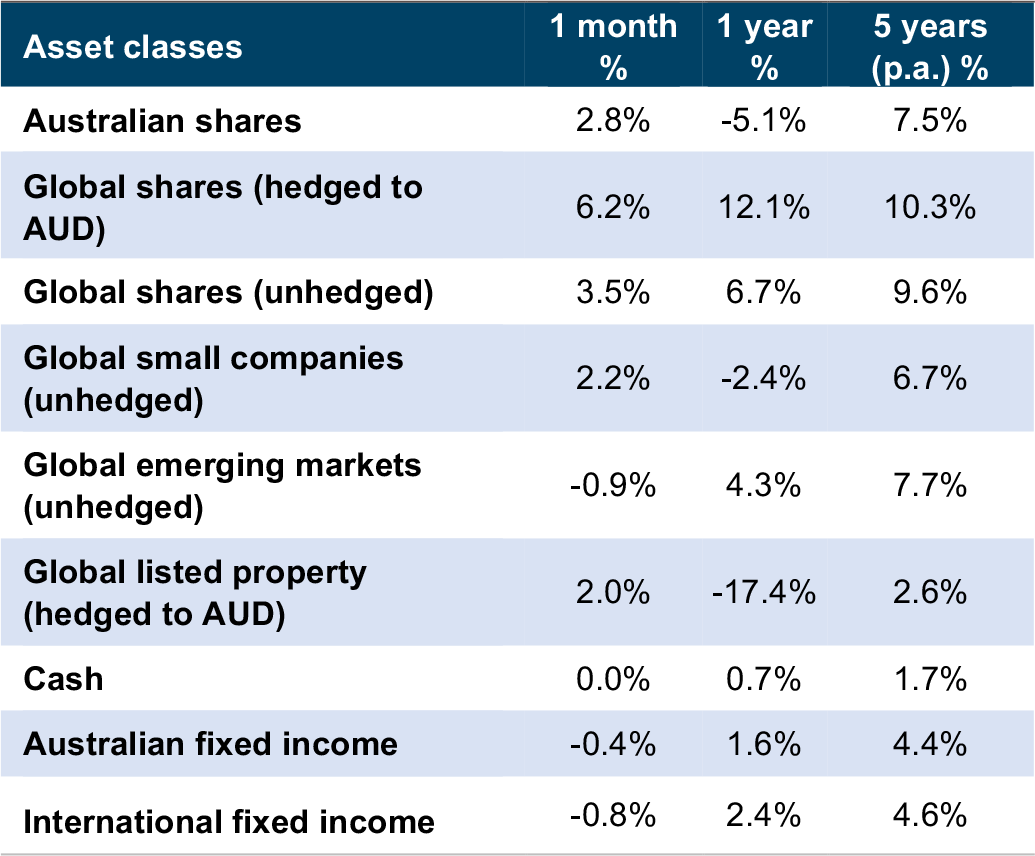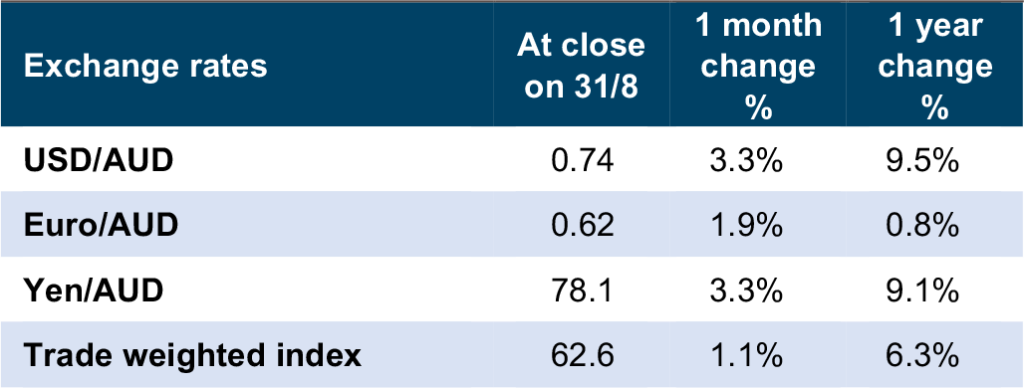Market Wrap September 2020
Risk asset Strength continued
- Global shares rose 6.2% and 3.5% in hedged and unhedged terms, respectively. Global equities continue to be led by the US market with Tech stocks the leaders as the tech-heavy Nasdaq Index rose by 9.6% in USD terms.
- Emerging markets fell -0.9% during August in Australian Dollar (AUD) terms. One driver was the 2% rise of the Australian Dollar against the Hong Kong Dollar over the period with other emerging market currencies also weakening.
- Australian shares underperformed global shares rising 2.8% in August. The month was defined by FY20 results reporting with Technology stocks rising over 15% as investors hunted for scarce growth while disappointment with the Telstra result saw the Communications Service sector fall over 5% during the month.
- The Australian dollar (AUD) also continued to rally from its climb from late March lows with an 1.1% rise against major currencies and a 3.3% gain against the US dollar notably.
- Fixed income returns were negative with Australian and international bond benchmarks falling -0.4% and -0.8% during August. Stronger growth expectations and a change in policy at the Federal Reserve saw bonds sell off and yields rise, driving negative returns.
As the economy gained momentum
Globally
- The improvement in leading indicators continued in the US with the Redbook Index, a measure of major retailer sales, up 0.6% for the year to 25 August ending several months of negative results since April. The Conference Board Leading Economic Index has also recovered its losses from the pandemic suggesting we should continue to expect an economic recovery in the US.
- Coronavirus cases appear to be stabilising at a global level although certain regions such as Europe are experiencing notable “second waves” of cases which have been less fatal thankfully than the early April experience. This along with new vaccine developments and a faster test by Abbott Laboratories continues to support the idea that the worst of the virus is behind us.
Locally
- We saw confirmation that Australia had entered recession with two consecutive quarters of negative growth as the economy shrank 6.3% in the year to June.
- The RBA left interest rates unchanged.
- Coronavirus case growth in Victoria has slowed rapidly, so much so that lockdown restrictions will be gradually relaxed from early September.
Major asset class performance

Indices used: Australian Shares: S&P/ASX 200 Accumulation Index, Global shares (hedged): MSCI World ex Australia Net Total Return (in AUD), Global shares (unhedged): MSCI World ex Australia Hedged AUD Net Total Return Index; Global small companies (unhedged): MSCI World Small Cap Net Total Return USD Index (in AUD); Global emerging markets (unhedged): MSCI Emerging Markets EM Net Total Return AUD Index; Global listed property (hedged): FTSE EPRA/NAREIT Developed Index Hedged in AUD Net Total Return; Cash: Bloomberg AusBond Bank Bill Index; Australian fixed income: Bloomberg AusBond Composite 0+ Yr Index; International fixed income: Bloomberg Barclays Global Aggregate Total Return Index Value Hedged AUD
Please note: Past performance is not indicative of future performance
Currency markets

Please note: Past performance is not indicative of future performance.